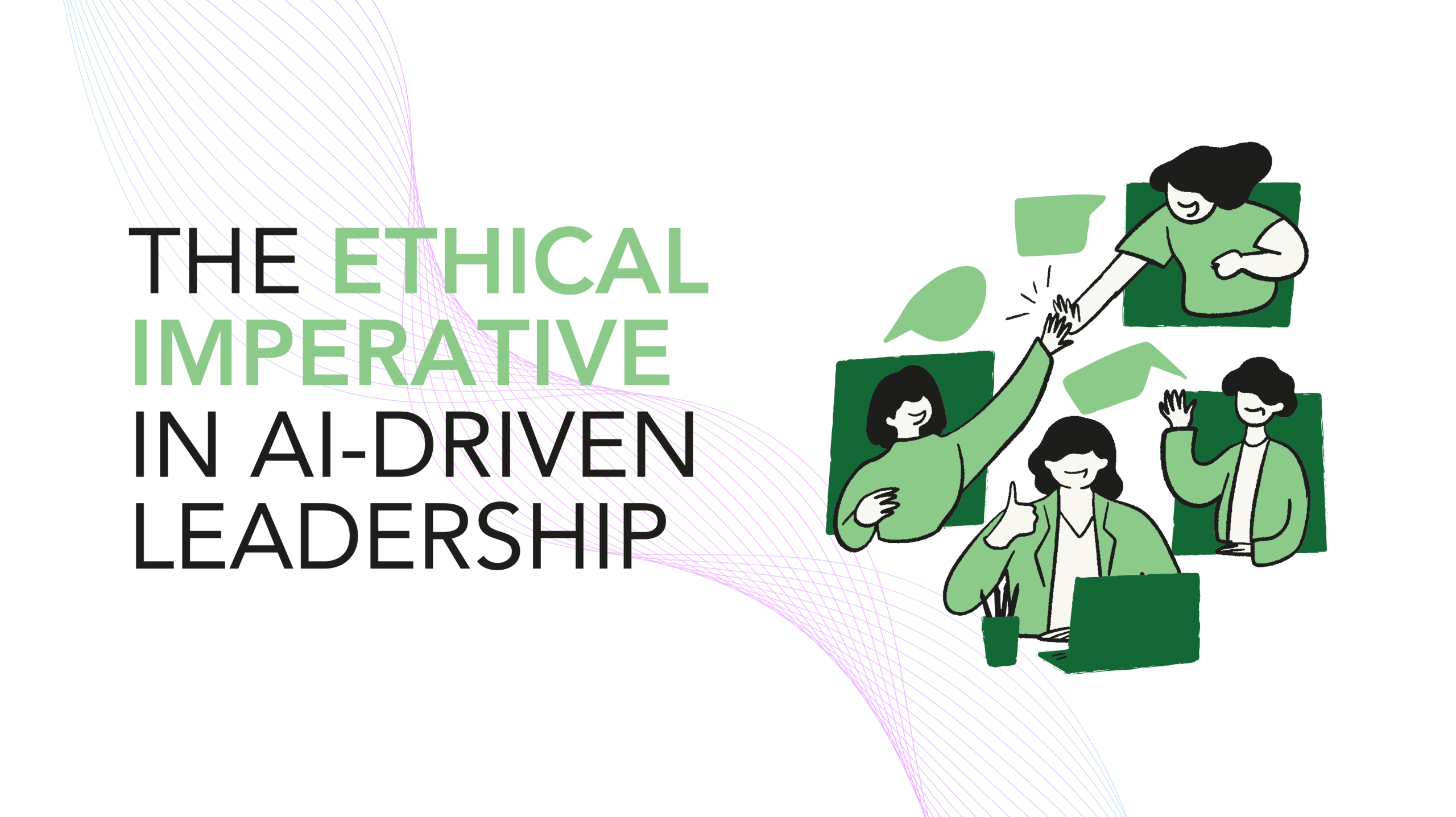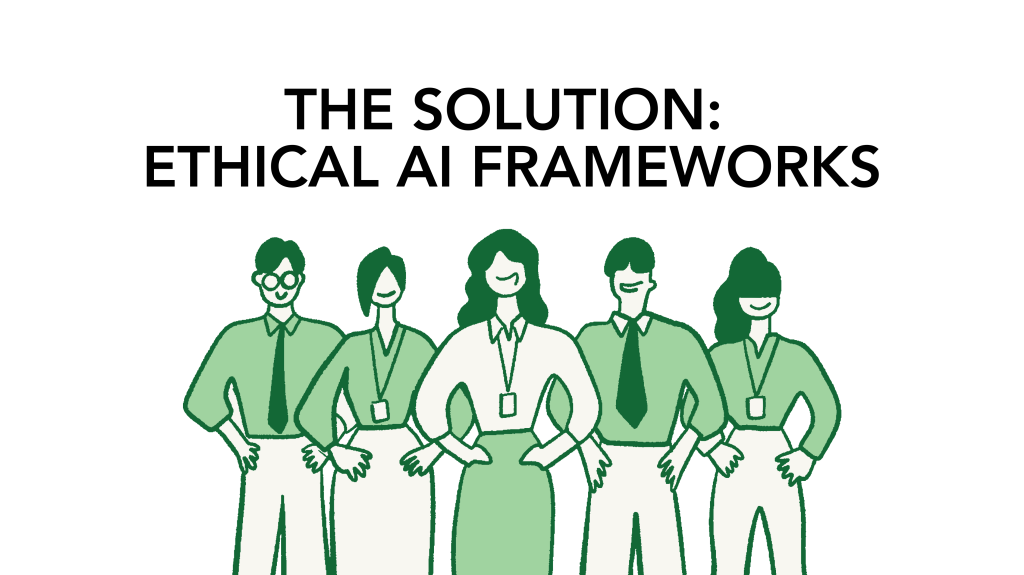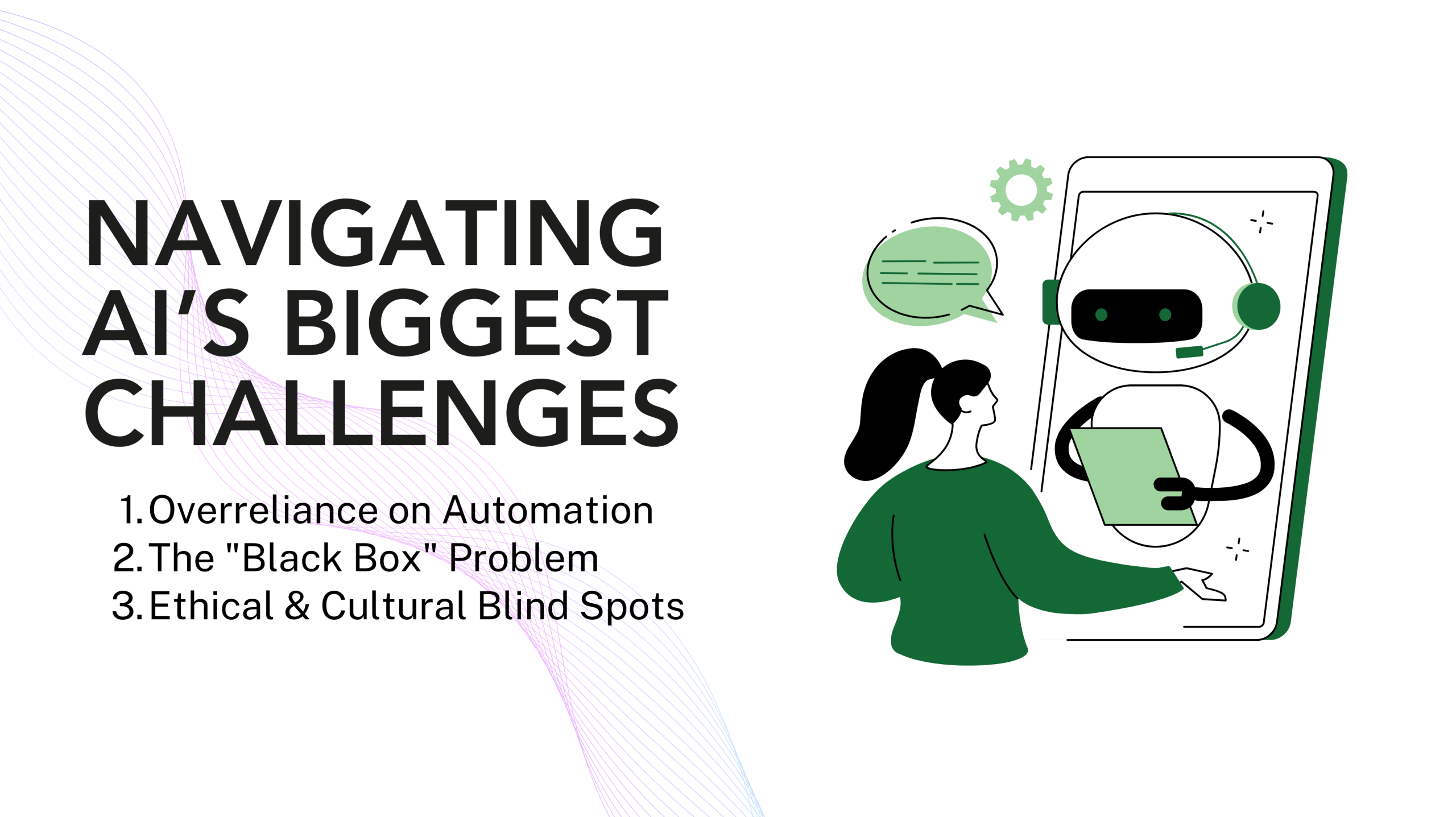How Leaders Can Ethically Embrace AI in Decision-Making
Artificial intelligence (AI) is transforming modern leadership, offering powerful tools to enhance decision-making, optimize team performance, and streamline operations. From startups to multinational corporations like Google and Salesforce, businesses are rapidly adopting AI to gain a competitive edge. However, as AI becomes more deeply embedded in leadership functions, ethical concerns—such as algorithmic bias, data privacy, and transparency—demand urgent attention.
The challenge for today’s leaders is not just harnessing AI’s capabilities but doing so responsibly. Ethical AI governance ensures that technology serves human interests rather than undermining fairness, accountability, and trust. This article explores how leaders can integrate AI into their decision-making processes while upholding ethical standards, balancing innovation with responsibility.
The Ethical Imperative in AI-Driven Leadership

AI’s ability to process vast amounts of data—market trends, employee performance metrics, customer behavior—far exceeds human capacity. Tools like Tableau and Microsoft Power BI enable real-time sales forecasting, while predictive analytics platforms help optimize resource allocation. However, without proper oversight, AI can inadvertently reinforce biases, compromise privacy, or prioritize efficiency over ethical considerations.
The Risks of Unchecked AI
- Bias Amplification: AI models trained on historical data may perpetuate existing prejudices, such as gender or racial bias in hiring algorithms.
- Loss of Human Judgment: Over-reliance on AI can erode critical thinking, leading to decisions that lack empathy or contextual understanding.
- Transparency Issues: Many AI systems operate as “black boxes,” making it difficult to explain how decisions are made—a major concern in regulated industries.
The Solution: Ethical AI Frameworks

To mitigate these risks, leaders must implement ethical AI frameworks that prioritize:
- Explainability – AI decisions should be interpretable by humans.
- Fairness – Models must be audited for bias and retrained if necessary.
- Human Oversight – AI should assist, not replace, human judgment.
By treating AI as a decision-support tool rather than an autonomous decision-maker, leaders can ensure technology aligns with organizational values.
Strategic Decision-Making with AI
AI-powered analytics are revolutionizing strategic planning. Platforms like Microsoft Azure AI and Google Cloud AI analyze market trends, predict demand fluctuations, and optimize pricing strategies. For example, Amazon uses AI-driven dynamic pricing to remain competitive while maintaining customer trust.
Key Ethical Considerations
- Data Integrity
- AI is only as good as the data it processes. Leaders must ensure datasets are diverse, up-to-date, and free from inherent biases.
- Example: A retail company using AI for inventory management must avoid over-relying on data from high-income regions, which could skew supply chain decisions.
- Purpose-Driven AI
- AI should balance profitability with social and environmental impact.
- Example: A bank using AI for loan approvals must ensure algorithms do not disproportionately reject applicants from marginalized communities.
- Transparency & Accountability
- Leaders must document how AI influences decisions to maintain stakeholder trust.
Example: If an AI system recommends layoffs, executives should be able to justify the reasoning behind it.
AI in Team Management: Opportunities and Risks
AI is reshaping talent management by analyzing employee performance, predicting attrition risks, and recommending career development paths. Companies like Salesforce use sentiment analysis to detect employee burnout, while platforms like Gloat help match workers with internal opportunities.
Ethical Pitfalls in AI-Driven HR
- Employee monitoring tools must comply with regulations like GDPR and ensure data anonymity.
- Historical hiring data may favor certain demographics. AI must be audited to prevent discrimination.
- Employees should understand how AI influences decisions affecting them.
Operational Efficiency Without Ethical Compromise
AI optimizes supply chains, automates compliance checks, and enhances risk assessment. Walmart used AI during COVID-19 to manage inventory spikes, while CoStar’s real estate analytics help investors make data-driven property decisions.
Guarding Against Ethical Risks in Operations
- AI-driven procurement systems should not disadvantage small suppliers in favor of corporate partners.
- AI should handle repetitive tasks (e.g., invoice processing) while humans oversee ethical and strategic decisions.
- Regular audits ensure AI systems function as intended without unintended harm.
Navigating AI’s Biggest Challenges
Despite its benefits, AI presents significant risks if misused:

1. Overreliance on Automation
- Early AI-driven layoffs at some firms led to backlash when algorithms ignored employee tenure and loyalty.
- Solution: Maintain human oversight in sensitive decisions.
2. The "Black Box" Problem
- Many AI models (e.g., deep learning systems) lack transparency, making it hard to audit decisions.
- Solution: Use explainable AI tools like IBM Watson, which provide decision rationales.
3. Ethical & Cultural Blind Spots
- AI lacks human intuition, potentially making culturally insensitive decisions.
- Solution: Restrict AI to data analysis, reserving human judgment for ethics and culture.
Building an Ethical AI Culture
Ethical AI adoption starts at the top but requires organization-wide commitment. Key steps include:
- Training employees on AI’s capabilities and limitations.
- Engaging stakeholders (employees, customers, regulators) in AI policy development.
- Documenting AI processes for compliance and transparency.
The Path Forward
AI is a game-changer for leadership, but its ethical application separates visionary leaders from reckless adopters. By combining AI’s analytical power with human wisdom, leaders can drive innovation while maintaining trust, fairness, and accountability.
The future belongs to those who embrace AI—not blindly, but responsibly.

